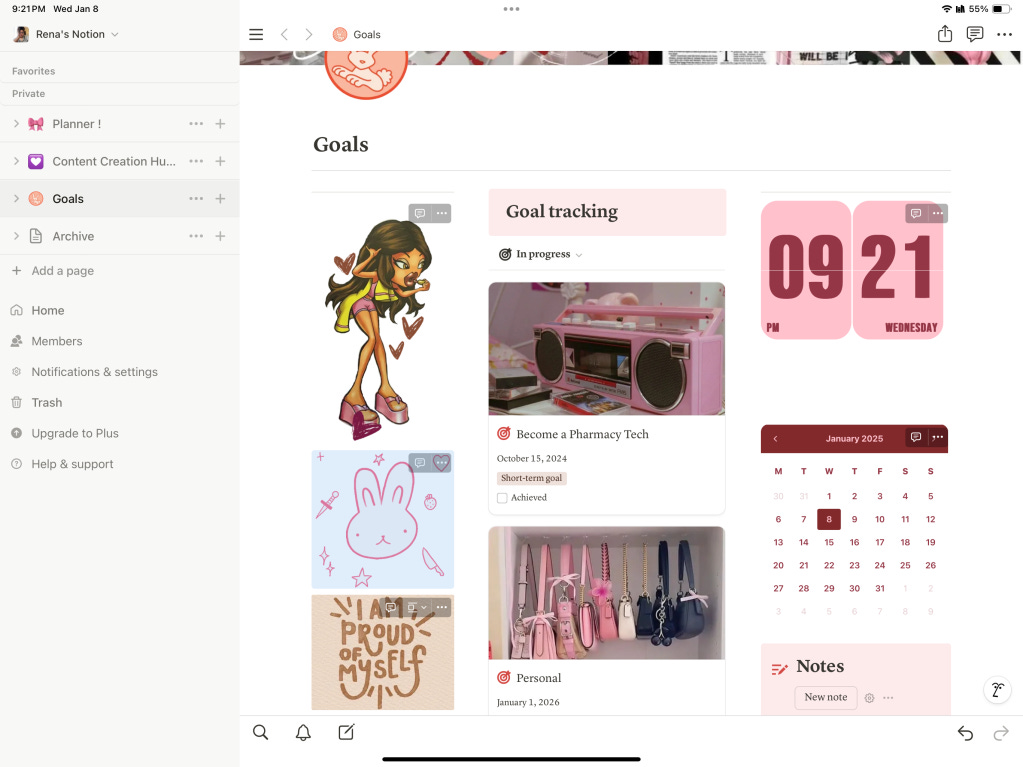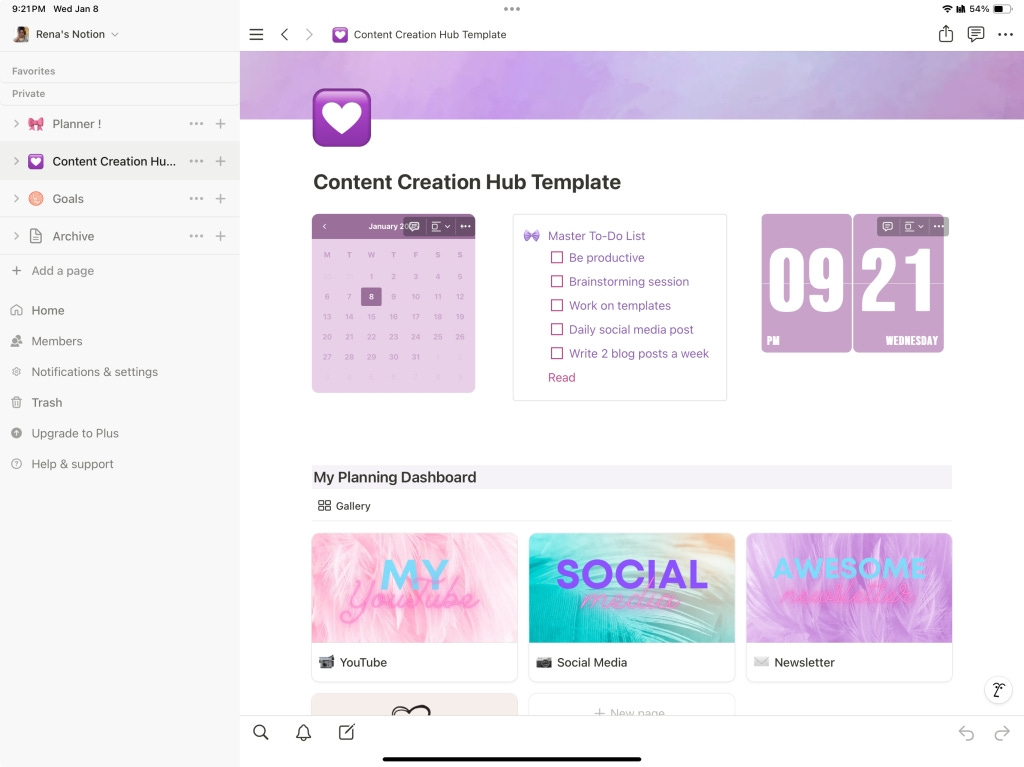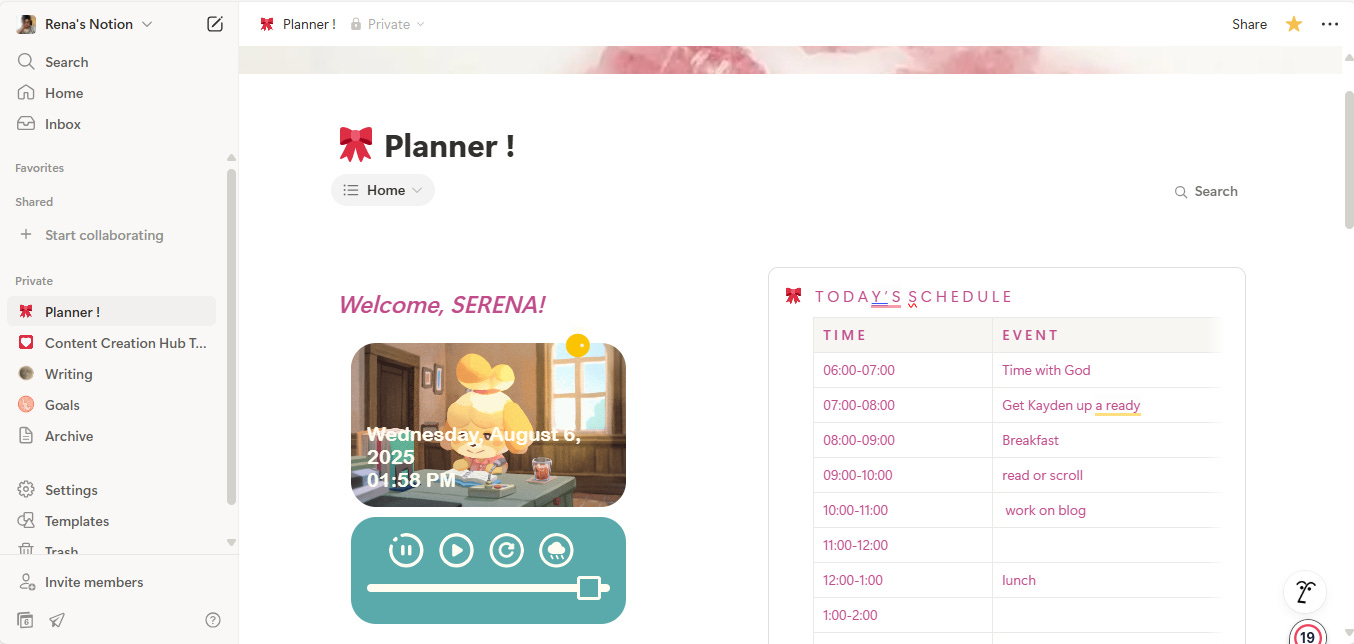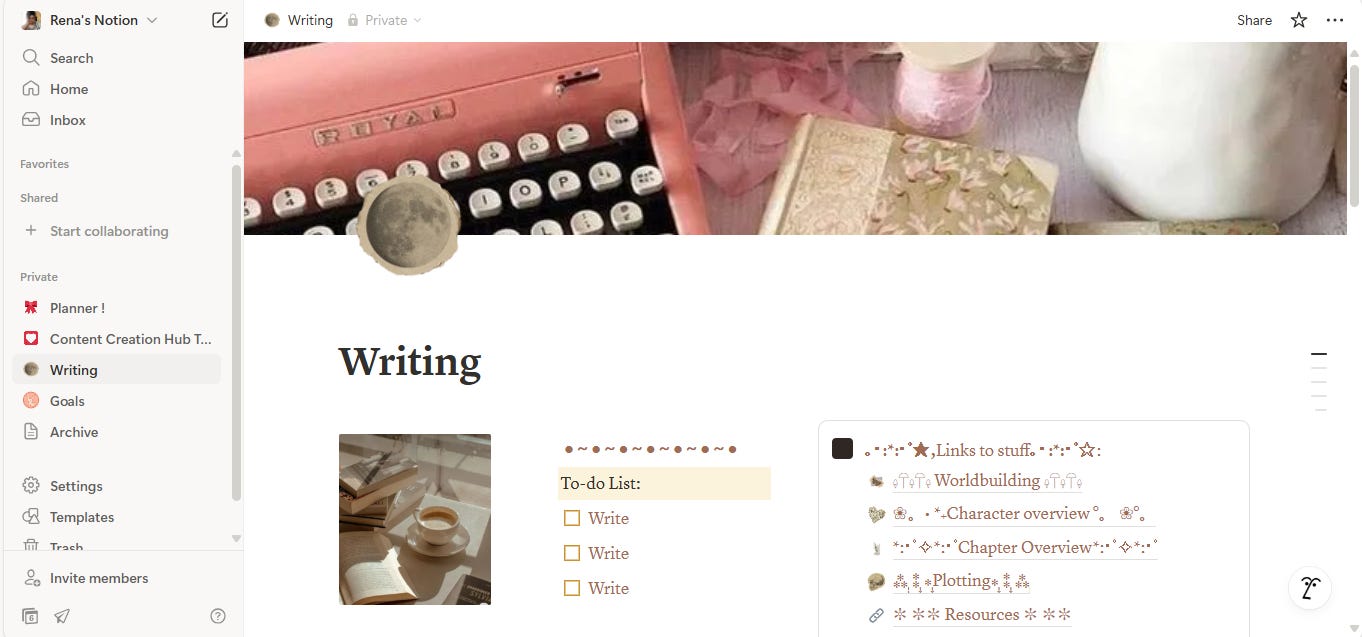Notion
Notion is a productivity tool popular among students, professionals, and teams worldwide. It combines the functionalities of a note-taking app, project management , and database system. Its flexibility can make it ideal for planning, reading, and school-related tasks.
Notion for Planning
Planning is one of Notion’s biggest selling points. Notion helps organize your personal life. It assists in managing your school assignments schedules. You can manage projects or coordinate team efforts with it. Notion provides the tools and flexibility needed to create a customized planning system. Notion can sync seamlessly across all devices, including iOS and Android.
Task Management
Notion allows users to create to-do lists, Kanban boards, calendars, and timelines to manage tasks effectively. You can:
Set Priorities: Use tags or properties to indicate task importance or urgency.
Assign Deadlines: Add due dates to tasks, which can be visualized on a calendar.
Track Progress: Monitor task completion by using checkboxes, progress bars, or status properties.
For example, a student can create a semester plan with deadlines for assignments, exams, and group projects. Linking tasks to a calendar view allows them to visualize their workload. This ensures they stay on top of their responsibilities. They can use the notion calendar function as a widget on their phone so they always have access to what needs to get done. They are also able to link their notion calendar to their Google calendar.

Goal Setting
Notion is ideal for setting and tracking goals. Users can:
Break down long-term goals into smaller, actionable steps.
Monitor progress using dashboards or progress bars.
Reflect on achievements and areas for improvement by journaling within the platform.
For instance, if you’re preparing for a certification exam, you can create a study plan, outline key topics, and allocate time for each section. Notion’s visual tools, like progress trackers, help maintain motivation and accountability.

Project Management
For more complex planning, such as managing group projects or events, Notion’s database features shine. You can create:
Shared Workspaces: Collaborate with others by sharing pages and assigning tasks.
Custom Templates: Design templates for recurring projects to save time.
Integrated Views: Combine task lists, calendars, and documents into a cohesive dashboard.
For example, a team planning an event can use Notion to assign roles, track milestones, and maintain a central repository for all event-related information.
Notion for Writing
This is my newest addition to my Notion “Writing” dashboard is my little creative command center for bringing a book to life. The cozy, aesthetic layout keeps me inspired while giving me quick access to everything I need. At the top, I have a simple to-do list where I can jot down my main writing tasks for the day. Below that, my linked pages keep all the moving parts of my story organized: Worldbuilding for fleshing out the setting and magic systems, Character Overview for keeping track of personalities and arcs, Chapter Overview for mapping out the structure, Plotting for scene breakdowns and story beats, and Resources for handy references or inspiration. Everything is just one click away, so I can jump between brainstorming and drafting without breaking my flow.
I love that Notion makes it easy to keep my ideas in one place while still letting me customize the vibe. My pages are full of linked notes, moodboard images, and little emoji markers that make the process feel fun rather than overwhelming. If I need to move scenes around, I can just drag and drop them in my Chapter Overview database. When I’m deep in worldbuilding, I can cross-link details so my characters, plot, and setting all stay consistent. It’s more than just a writing space, it’s my creative home base where every part of my book lives, grows, and comes together.
Notion for Reading
Notion’s versatility extends to reading and knowledge management. Whether you’re a casual reader, a student, or a professional, Notion can help you organize and enhance your reading experience.
Reading Lists
Notion can be used to create and manage reading lists for books, articles, and other resources. You can:
Categorize Content: Group items by genre, topic, or format (e.g., book, article, paper).
Track Progress: Use properties to indicate whether a resource is unread, in progress, or completed.
Add Notes and Highlights: Attach notes or quotes to each item for easy reference later.
Book Tracking: Notion can help you keep track of all the books you currently own. Alternatively, you can maintain a spreadsheet listing all the books you have. This can include how much you have spent on them.
For instance, avid readers can maintain a comprehensive library of books they’ve read or plan to read, complete with ratings, reviews, and summaries.
Annotation and Study
Notion is an excellent tool for annotating and summarizing material for academic or professional reading. You can:
Copy and paste excerpts or key points into a Notion page.
Organize notes by topic or chapter.
Link-related resources for deeper exploration.
Students studying for exams can create structured pages for each subject, consolidating lecture notes, textbook highlights, and supplementary resources in one place. Researchers can compile annotated bibliographies, linking notes to specific articles or papers.
Collaborative Reading
Notion’s sharing and collaboration features make it suitable for book clubs or study groups. Participants can:
Share reading lists and schedules.
Discuss insights and interpretations in shared pages.
Collaboratively annotate and analyze texts.
This makes Notion an interactive platform for engaging with others on shared reading material.
Notion for School
For students, Notion is a game-changer. It simplifies the process of organizing schoolwork, managing schedules, and meeting academic goals.
Course Management
Notion allows students to create dedicated pages for each course. These pages can include:
Syllabus and Schedule: Upload or replicate the syllabus and track class schedules.
Assignment Tracker: Maintain a list of assignments, due dates, and status.
Resource Repository: Store lecture notes, slides, and supplementary materials.
By centralizing all course-related information, students can reduce stress and improve their ability to manage academic responsibilities.
Study Planning
Notion’s database and calendar features are perfect for creating study plans. Students can:
Break down topics into manageable chunks.
Schedule study sessions and set reminders.
Track progress using visual tools like checkboxes or progress bars.
For instance, students preparing for final exams can allocate specific days to review different subjects. This approach ensures comprehensive preparation. It helps avoid last-minute cramming.
Group Projects
Group projects are often stressful for students, but Notion’s collaborative features make them more manageable. Teams can:
Share project outlines and brainstorm ideas.
Assign tasks and monitor individual contributions.
Centralize communication and document sharing.
Maintaining a shared workspace allows group members to stay organized and ensure accountability.
Personal Development
Beyond academics, Notion can help students with personal growth and skill development. They can:
Track extracurricular activities and achievements.
Set goals for internships, part-time jobs, or certifications.
Maintain a digital portfolio showcasing projects and accomplishments.
For example, a student interested in graphic design can create a portfolio page. This page should highlight their work. It could include links to external projects and testimonials.
Integrating Planning, Reading, and School in Notion
Notion’s true power lies in integrating multiple functions into a cohesive system. A student, for instance, can create a single dashboard that combines:
Academic schedules and deadlines.
Reading lists and study resources.
Personal goals and extracurricular plans.
With interconnected databases and linked pages, users can streamline their workflows and eliminate the need for multiple apps or platforms.
Tips for Getting Started with Notion
If you’re new to Notion, here are some tips to help you get started:
Explore Templates: Notion offers many pre-built templates for planning, reading, and school-related tasks. Use these as a starting point and customize them to fit your needs. Notion does offer free templates. You can purchase templates from Etsy. Look for free ones on Pinterest. Search YouTube videos on how to make them.
Learn the Basics: Familiarize yourself with key features like databases, linked pages, and blocks. Notion’s official guides and community tutorials are excellent resources.
Start Simple: Begin with a basic setup and gradually expand as you become more comfortable. Overcomplicating your workspace initially can be overwhelming.
Use Shortcuts: Learn keyboard shortcuts to speed up your workflow and make navigation easier.
Sync Across Devices: Install Notion on your computer, tablet, and smartphone to access your workspace anytime, anywhere.
Conclusion
Notion is an incredible tool for planning, reading, writing, and school-related tasks. Its flexibility allows users to create personalized systems that adapt to their needs. They can manage complex projects, organize academic materials, or enhance reading habits. Users can unlock their full potential by investing time in setting up and customizing Notion. This effort transforms how they work, learn, and grow.




